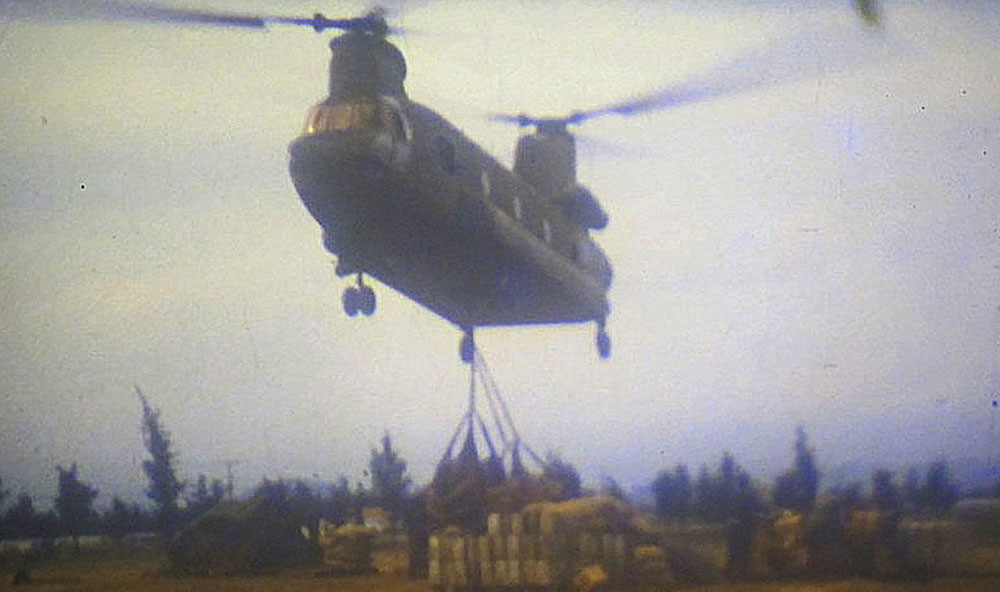 Download PDF of this full issue: v52n1.pdf (24.3 MB)
Download PDF of this full issue: v52n1.pdf (24.3 MB)From Vietnam Veterans Against the War, http://www.vvaw.org/veteran/article/?id=4065
 Download PDF of this full issue: v52n1.pdf (24.3 MB) Download PDF of this full issue: v52n1.pdf (24.3 MB) |
The Vietnam War involved both military and civilian personnel.
I served in the State Department's United States Agency for International Development, part of President Nixon's ''Pacification Program'' from 1969-1971.
After having served in the Peace Corps in India, I wished to return to Asia.
The US Foreign Service was recruiting former Peace Corps volunteers to work in the new Pacification Program in South Vietnam. At the time I was ambivalent about the war. However, I took the job as an advisor to the Vietnamese Social Welfare chief in Quang Tin Province, wanting to help civilian Vietnamese.
My first experience of what I was getting involved in occurred as my plane descended into Saigon. Looking out the window I saw large holes in the ground filled with water. They were bomb craters. The realization that I was in a war zone was chilling. As the jet taxied to the terminal I witnessed green body bags being loaded into a military airplane. That's when my stomach tightened. That feeling lasted the whole time I served in Vietnam.
I was one of the American civilian advisors who had accepted a job with the US Military in a program called CORDS (Civil Organization for Revolutionary Development).
Washington's idea was that US civilians and military working together would assist the Vietnamese and win their hearts and minds to defeat the Viet Cong.
I was housed in a fortified compound in the town of Tam Ky with American military personnel. In this proximity to the military, I became aware that many military officers were more interested in advancing their careers than in fulfilling their current mission in Vietnam. This was also true of many of the civilian advisors.
I soon understood that the results of the Pacification Program weren't working. Most of the local population didn't want Americans there and were weary of the war.
Being a civilian amongst the US and South Vietnamese military offered me the unique perspective of how many of the government civilian advisors and military really functioned.
In my job I was responsible for the distribution of US food aid for the needy Vietnamese in the Province to which I was assigned.
This entailed getting food to areas where ground transportation to distribute the aid was too dangerous, so helicopters would fly the food into areas that were designated to receive it. I would fly on the choppers and be there on the ground as the slings deposited the food aide. Much of the food surplus aid was not compatible with the Vietnamese diet. The US government would provide things like canned pasta, bulgar wheat, and powder milk, not rice which was what people wanted and needed.
I was also assigned to assist in the settling of the large numbers of refugees who were flooding into Quang Tin Province. I was given no budget for this big task. I would scrounge discarded materials from nearby army bases and use them to build simple structures to house the many refugees.
It didn't take me long to realize that much of the US Pacification Program was a sham. Although some of the personnel I worked with were serving honorably, I did find that many of them were not. The American personnel that filled the ranks, for the most part, took advantage of their positions as advisors by falsifying progress reports and personally profiting with the corrupt South Vietnamese military.
A number of times I was ordered to sign-off on large amounts of US food aid which did not go to the needy, but instead was diverted into the pockets of those in charge, both American and Vietnamese. I was reprimanded for not going along with their plans. When large numbers of refugees entered into the Province of Quang Tin, I was told to lower the numbers in my report, and alter the data so that the reports would benefit the data for those in charge in Saigon.
During the winter season, my province experienced a great deal of rain and flooding. Most of the roads were under water. It became difficult to get around. As an AID (Agency for International Development) officer I was to assist the refugees. As I was working alone, I requested help from others and I was told that it was my job alone, not theirs and they refused assistance. As I worked hard finding a truck and helping refugees in their flooded camps, the Americans I Iived with didn't give me a hand. They stayed out of the rain and at the compound tiki bar, drinking.
Most of the military who were drafted hated being in Vietnam. I witnessed open insubordination and threats of fragging by the enlisted men. My closest friends during this time were a navy medic (Jones) and an army sergeant. Having a few friendships helped me cope during this time of war. I was experiencing the constant threat of being injured or killed, and felt the constant stress of being in a war zone.
Following my experience in the Vietnam War, I questioned the United State's involvement in Afghanistan and other war zones. I am cautious in believing what the government reports, having learned first hand that the truth was often corrupted.
Terry Coleman lives in Tucson, Arizona with his wife Ellen.He is retired from working as a school counselor.

|
| Terry Coleman with his Scout car. |

|
| Choppers carrying foodstuffs at Tom Ky. |